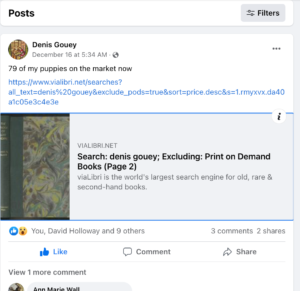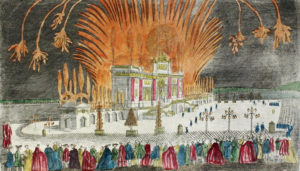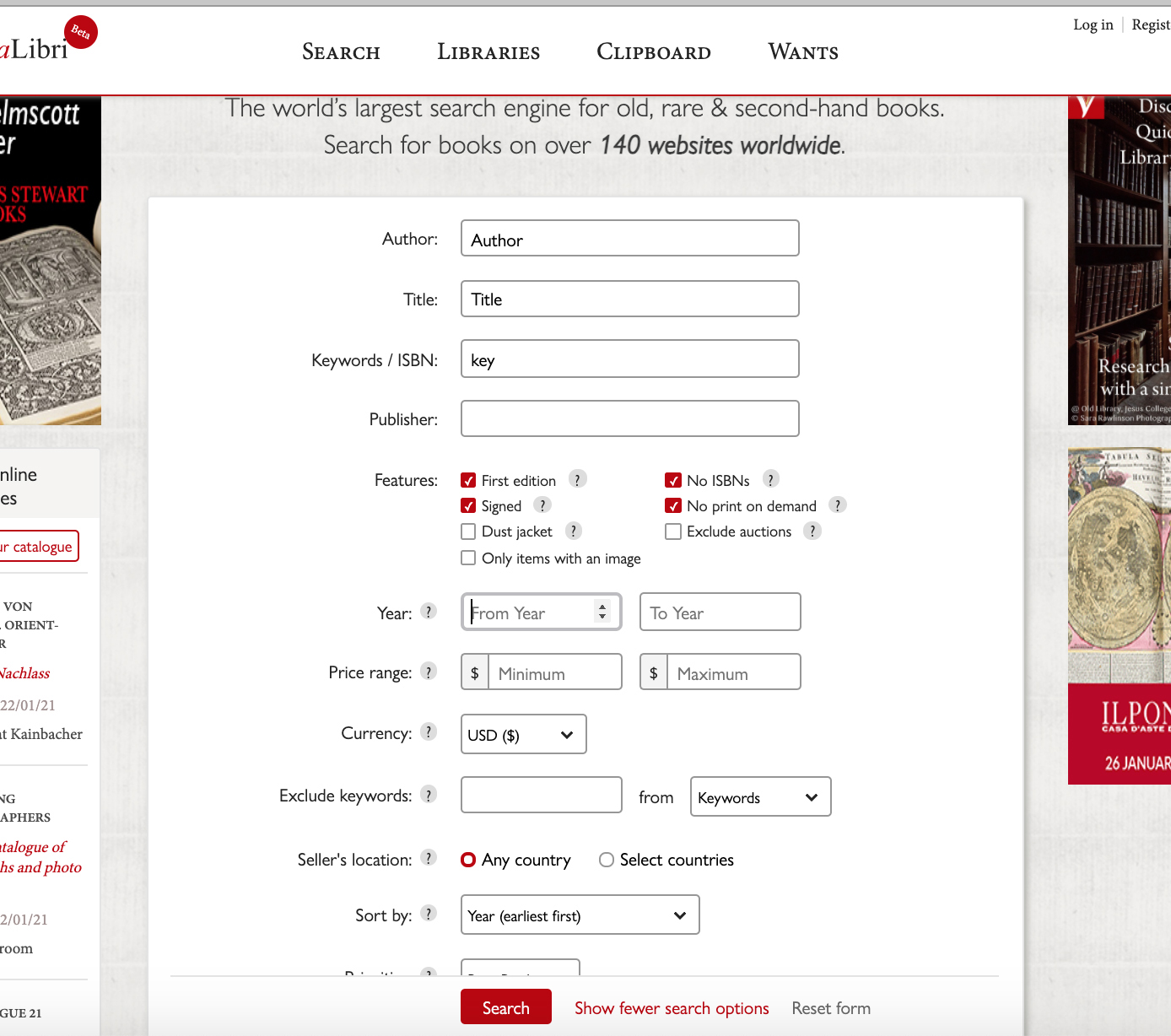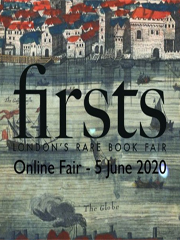The most interesting phenomenon of the last month or so, at least from a bibliophilic perspective, has been the arrival of a new way to buy and sell books online: virtual book fairs. The idea followed in the wake of the cancellation of multiple traditional physical book fairs as a result of the coronavirus. By my count there have already been at least seven virtual fairs, beginning with a digital version of the Paris Book Fair opening on April 23 and followed by fairs organised by IOBA, PBFA, Marvin Getman, ABAA, ABA (“Firsts”) and, most recently, the Rose City Virtual Book Fair.
For those who did not join in, the fairs were basically of two types. The first group consisted primarily of a listing of “exhibitors” with links to PDF catalogues available for browsing. This replicated the fair lists that are now regularly sent out by many of the dealers as a preview of what they will be offering in their booth at a traditional physical fair. For many dealers the sales generated by these lists often exceed what they receive at the actual event. In this way the virtual fairs were able to do much to compensate revenue lost when planned-for fairs did not take place.
The second group consisted of books that were aggregated into a joint data base where each exhibitor was able to include a fixed number of items (12 to 50) that could be searched, sorted and filtered in a variety of ways. This is not too distant from the group search engines that we are already familiar with, except that here the individual dealers are given much more prominence and are better able to present themselves to potential buyers than in the search engine venues that people are already familiar with. Buyers were also encouraged to believe that the books that were on offer were all new to the market. Those who took the time to double-check this on Google, or even viaLibri, often discovered that this was not always the case, but it was for sure that at most of the fairs the sellers made an effort to put some of their best or most unusual items onto their virtual stands.
Most of the data-driven fairs were also interesting because they left the sold items on display, still priced, but flagged to let you know that someone else beat you to it. Unlike traditional fairs, I doubt if there were any books that passed through 2 or 3 virtual stands before the doors first opened to the public. And given the number of sold stickers I saw at some fairs it is clear that, at those fairs at least, there were many sales taking place. I will admit that I had limited expectations regarding attendance, and the organisers apparently did too. The ABAA and Firsts fairs were overwhelmed by visitors at their openings, which resulted in both sites being virtually frozen for at least twenty minutes, if not more. Whether those visitors waited, came back later, or just gave up, I don’t know. But I think the prospects for future online book fairs are very good. Several of the sponsors of the recent fairs have announced that they plan to have monthly fairs in the future.
I am very interested in hearing the comments from other buyers and sellers who participated in any of the VBFs that have just taken place.
Did they find them a good way to buy or sell?
Will they show up at future fairs?
Will the old-fashioned book fairs return to their same prominence after the call for social distancing has been revoked?
 well-known bookbinder from Connecticut. Naturally, he is interested in promoting his skills on the internet. You can find him on Facebook where, on Friday, he published a post that links to a viaLibri search result listing all the books on viaLibri that match on the keyword “Denis Gouey”. As a result, anyone visiting him on facebook can click on this link and see pictures of lots of books bound by him and currently for sale online.
well-known bookbinder from Connecticut. Naturally, he is interested in promoting his skills on the internet. You can find him on Facebook where, on Friday, he published a post that links to a viaLibri search result listing all the books on viaLibri that match on the keyword “Denis Gouey”. As a result, anyone visiting him on facebook can click on this link and see pictures of lots of books bound by him and currently for sale online.





